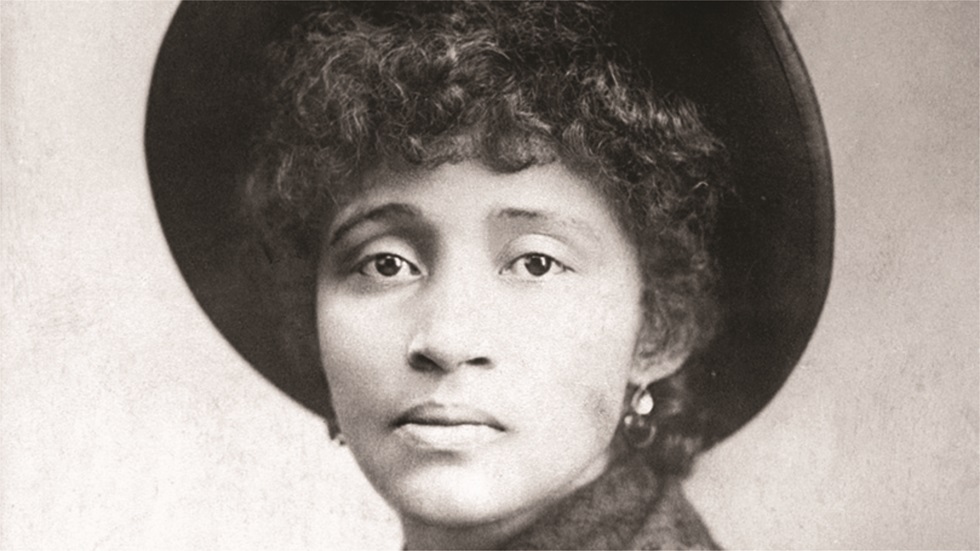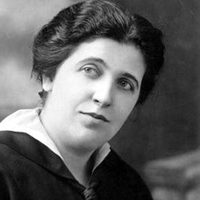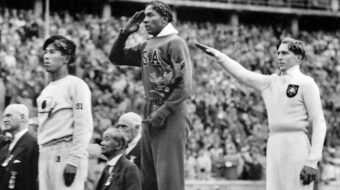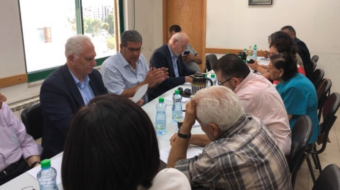
This article is part of the People’s World 100th Anniversary Series.
Lucy Parsons—a radical leader in her own right—is often overshadowed in the annals of labor history by her husband, Albert Parsons, one of the May Day martyrs murdered by the state in 1887 after the demonstrations at Haymarket Square the year prior.
When Parsons died in 1942—on International Women’s Day—she was mourned by her comrades in the Communist Party USA, which she had joined three years prior. Elizabeth Gurley Flynn, a prominent leader in the CPUSA, was one of Parsons’ close friends. She wrote the article remembrance below, which appeared in the Daily Worker on March 11, 1942.
Parsons and Flynn had been associates and sisters in the struggle for decades by that point. The two had been involved in 1912 in founding the Syndicalist League and later worked side-by-side in the International Labor Defense, a mass organization created by the CPUSA to defend native and foreign-born workers from persecution.
Parsons was actively involved in the Sacco & Vanzetti Defense Campaign, the Angelo Herndon Defense Campaign, and the fight to save the Scottsboro Nine.
Having earlier been an anarchist like her husband Albert, she gravitated toward the CPUSA in the 1920s and ’30s. She once wrote: “Anarchism has not produced any organized ability in the present generation, only a few little loose struggling groups, scattered over this vast country…. I went to work for the International Labor Defense because I wanted to do a little something to help defend the victims of capitalism who got into trouble, and not always be talking, talking, talking.”
To learn more about the life of Lucy Parsons, read “Lucy Parsons, American revolutionary,” by Norman Markowitz, available on CPUSA.org.
Lucy Parsons: Tribute to a heroine of labor
By Elizabeth Gurley Flynn
Daily Worker, March 11, 1942
In a poor frame house on the North Side of Chicago, an old lady, 83 and blind, was burned to death last Saturday evening. She was Mrs. Lucy Parsons, widow of Albert Parsons, one of the Haymarket Martyrs of 1887.
Thus a horrible accident ended a life of sorrow and tragedy, of militant struggle and undaunted courage. She lived there by choice. Many times in late years, friends tried to persuade her to live with them so she could be cared for better. But she wanted to be independent, among her many books, her documentary records of other days—and her memories.
She died not far away from the spot where her husband and comrades—Spies, Fischer, and Engels—were hung in the courtyard of the Cook County jail. It was also not far from the Chicago Ave. police station where as an anguished young wife, 55 years ago, she and her two young children were placed in “protective custody” in a cell until the hangings were over.
Only a few years before, she had come with her husband up from the Deep South where they were born. He was a handsome, highly intelligent man, editor of a paper in Texas. But from his earliest youth, he had been “a radical”—actually a Republican not long after the Civil War and a daring advocate of equality for the Negro people.
When he married Lucy, a beautiful dark girl, with Spanish, Indian, and Negro lineage, he was ostracized, denied employment, and forced to leave the South.
Brave, active fighter
In Chicago, he plunged into the labor movement. He was an eloquent speaker, an excellent writer, and an effective organizer for the Knights of Labor. Lucy was his devoted assistant. He published a paper, ran for Congress on a Union Labor ticket, and made speaking tours through the Midwest.
He became one of the outstanding leaders in the eight-hour struggle. There was much ideological confusion during this period. Parsons referred to himself as a socialist, anarchist, trade unionist, and internationalist. But it is clear that he was always a brave and loyal defender of the rights of the workers and was the victim of a gigantic frame-up to crush the growing labor movement of that day.
He and his comrades were martyrs for the eight-hour movement. On May 1, 1886, strikers were killed outside the McCormick Harvester Works. A protest meeting was hurriedly arranged on May 4, at Haymarket Square. Mayor Carter Harrison was there for a short while and left, satisfied that all was peaceful. Immediately after his departure, the police brutally charged the crowd. Someone on the outskirts, to this day unknown, hurled a bomb which killed a number of workers and police. All the foreign-born speakers were arrested for murder.
Parsons, the only native-born American, walked into the courtroom and surrendered. The dangerous theory of “constructive conspiracy,” that a speaker is responsible for any violence that occurs at a gathering was first developed here…. The trials were legal lynchings, although organized labor, weak as it was, made a gallant effort to save them…. But the forces of monopoly howled for their blood and won—then.

When Albert Parsons died, Lucy was 28 years old. His last request to her was to bring their message to the people. She understood this as a sacred responsibility. Other women might have sought seclusion to solace their grief. Many would have been crushed and broken by the ordeal. Some might have considered caring for and shielding the fatherless children their first responsibility. Not many women traveled around speaking in those days.
Lucy Parsons carried on
But Lucy Parsons made her choice. She took up the unfinished work of Albert Parsons for half a century. Even as late as the winter of 1940 at 82, she spoke out of doors in zero weather to the Harvester Works strikers of the CIO. After their victory, they had her ride on their float in the May Day procession last year, a beautiful tribute to her past.
Lucy Parsons shed no futile tears in 1887. She collected all her husband’s writings into a book with the story of the trial and the magnificent defiant speeches the doomed men addressed to the world, through the court. She went from city to city, year in and year out. She visited local unions night after night until she had sold thousands of this book. From coast to coast, she kept the memory of Albert Parsons green forever.

Lucy Parsons spoke in a beautiful melodious voice, with eloquence and passion. She had her roots in the people, which gave her strength. Both of her children died. She kept on alone, without wavering. She never lost faith in the power, courage, intelligence, and ultimate triumph of the people.
Years ago, she accustomed trade union men to listen respectfully to a woman speaking for labor. She helped make them more keenly aware of the need for strong unions and organizing the unorganized. She helped build up a strong tradition of labor defense so that other leaders of labor should not suffer the same fate as her husband.
When Eugene V. Debs spoke at the 1905 Industrial Workers of the World (IWW) convention, Mother Jones sat on one side of him and Lucy Parsons on the other. Bill Haywood presided. She encouraged every new effort to push forward the whole labor movement. What a great satisfaction it must have been to her to realize the number of splendid young women, many of her color, who are enrolled in it today. What a joy to see trade unions millions-strong.
She did not live in the past. She lived for the future. She will live in the future, in the hearts of the workers.
We hope you appreciated this article. At People’s World, we believe news and information should be free and accessible to all, but we need your help. Our journalism is free of corporate influence and paywalls because we are totally reader-supported. Only you, our readers and supporters, make this possible. If you enjoy reading People’s World and the stories we bring you, please support our work by donating or becoming a monthly sustainer today. Thank you!












Comments